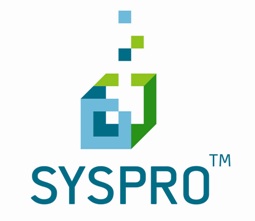 The app store model popularised by Apple is gaining further adoption in the world of ERP (enterprise resource planning) software, with new stores announced this week by Syspro and Unit4.
The app store model popularised by Apple is gaining further adoption in the world of ERP (enterprise resource planning) software, with new stores announced this week by Syspro and Unit4.
Syspro’s app store, which was announced on Friday, will be available “shortly” and will eventually feature thousands of applications, the company said in a statement. Publishers can provide their offerings on the store for no charge, receive a one-time payment, “or protect intellectual property through Syspro’s licensing model,” it added.
About 90 percent of Syspro’s sales come through channel partners, and the bulk of those thousands of applications will likely be generated through them, according to ERP analyst Cindy Jutras of the consulting firm Mint Jutras. The company’s software features an architecture that allows the creation of added functionality “from the outside in as a component, without touching the source code,” she said.
Bucking a trend, however, the initial focus of the store will be more on desktop-based add-ons, not mobile applications, Jutras said.
Syspro sells to smaller and medium-sized companies, focusing on the food, medical device, electronics and machinery verticals, Jutras said. Its customer base is not necessarily clamoring for an app store, as they typically aren’t on the leading edge of software adoption, she added. Still, the store will have value in that it will allow customers to broaden the capabilities of their core systems, she said.
In addition, “the kind of company they sell to will really like the whole consumer approach to having star ratings and reviews [for applications],” Jutras said.
Syspro’s store “allows customers to download highly granular intellectual content from the company’s ecosystem,” said analyst Michael Krigsman, CEO of the consulting firm Asuret, in an email. “It is a true user-to-user system. SYSPRO’s challenge will be convincing its ecosystem to participate and make the app store a vibrant marketplace.”
App stores make sense for ERP, Krigsman added: “They reduce customisation costs because customers can download narrow customisations and solutions that other users have already developed.”
Meanwhile, earlier this week Unit4 announced an app store of its own, which focuses on analytics software.
A set of 35 “bite-sized” analytic applications will be available through the Unit4 Solution Store, the company said in a statement. The applications are organised around various business roles and questions, such as the status of a budget, or employee performance.
They will work in junction with Unit4’s Agresso and Coda financials software and are “mobile-accessible,” Unit4 said. Pricing starts at US$6 per user per month, and it is possible to have them running in just a couple of days, according to the company.
The applications are “90 percent complete” once a customer submits an order. Doing so triggers a message to Unit4’s consulting team for the final configuration. It’s also possible for customers to deploy the applications on their own if desired, according to a statement.
Unit4’s store is set for a July 16 launch in the U.K. German customers will get access on Aug. 1, with a Norway rollout planned for the end of September, Unit4 said. Other countries will be added later this year.
While the applications are “attractively designed,” the requirements of manual downloading and installation are weaknesses in Unit4’s store, albeit ones that should be smoothed out over time, Krigsman said.





